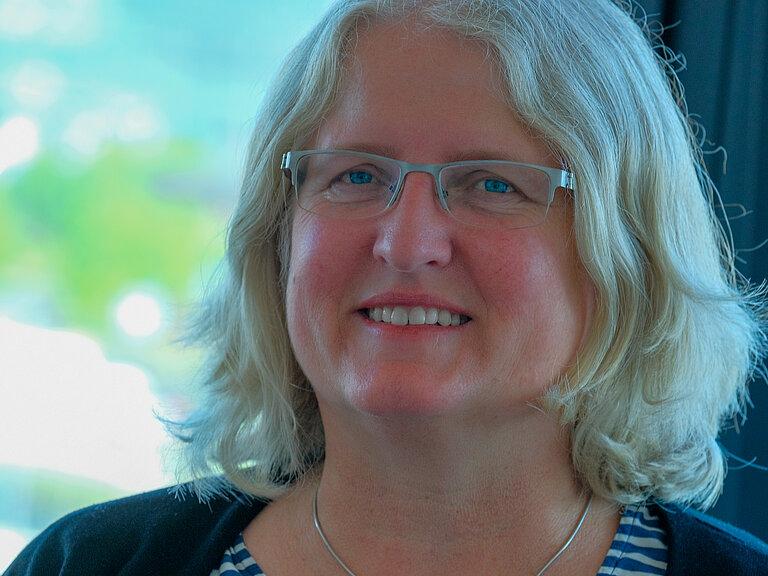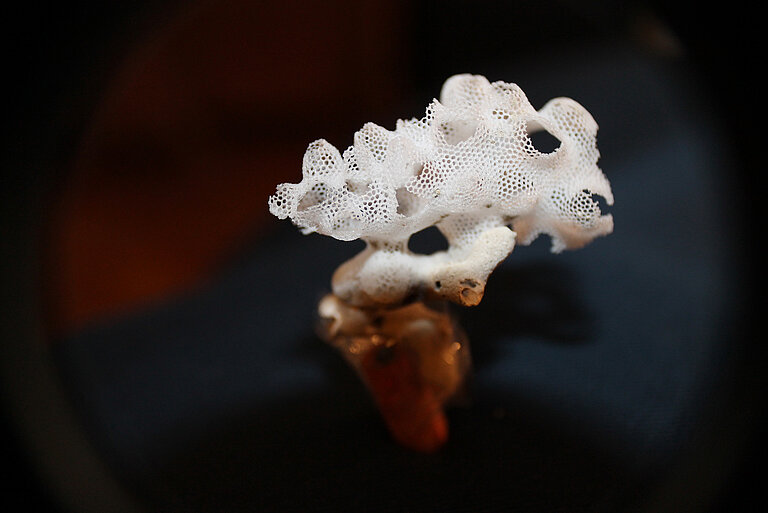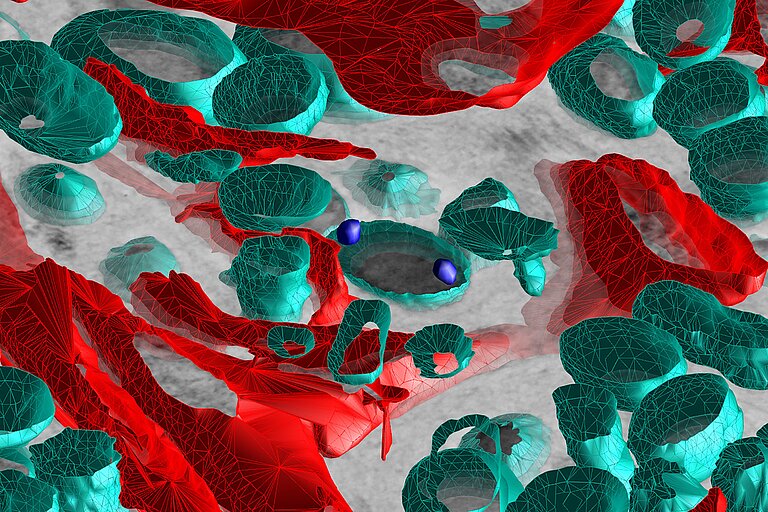Kiel biologist elected new member of the prestigious Leopoldina
Prof. Dr Ute Hentschel Humeida honoured for her outstanding research on marine symbioses
– Joint press release of GEOMAR Helmholtz Centre for Ocean Research Kiel and Kiel University –
Professor Dr Ute Hentschel Humeida's cutting-edge research on marine symbioses has been honoured with membership of the German Academy of Sciences Leopoldina. Hentschel Humeida is Professor of Marine Microbiology at the GEOMAR Helmholtz Centre for Ocean Research Kiel and at Kiel University (Christian-Albrechts-Universität zu Kiel, CAU). The Leopoldina unites researchers with special expertise in their respective fields. Membership is based on outstanding scientific achievements.
“GEOMAR warmly congratulates Professor Ute Hentschel Humeida on her admission to the prestigious academy”, says Professor Dr Katja Matthes, Director of GEOMAR, “with her, the Leopoldina gains a top-class scientist in its ranks. It is this kind of top-level research that is needed to develop solutions to current challenges”.
The presidency of Kiel University also congratulates: “The admission as a new member is a strong signal from the academy for Kiel's leading role in the microbiology of marine organisms. We warmly congratulate Professor Ute Hentschel Humeida. With her commitment to the Kiel Marine Science research focus at the CAU, she has made a significant contribution to the interdisciplinary networking and further development of excellent research on ocean health,” says Vice-President Professor Dr Ralph Schneider.
After completing her PhD in marine research at the renowned Scripps Institution of Oceanography, La Jolla, California, USA, Professor Dr Hentschel Humeida worked for many years in infection research at the University of Würzburg, Germany. With this medical background, she has a particular perspective on the health aspects of the ocean and is known for her interdisciplinary research, in particular investigating the diversity and characteristics of microbes in the context of their animal hosts.
“Our work is based on the realisation that animals and plants do not exist as solitary organisms, but always in symbiosis with microbes. We still know far too little about the importance of this microbiome for the health of animals and humans,” she says. This is particularly true for marine life: “Every litre of seawater contains about five million bacteria, and all life has evolved in this environment”. Sponges, for example, consist of up to 40 per cent microbial biomass. The Kiel biologist and her team are investigating the diversity of these microbes, what functions they contain and how they contribute to the health or disease of their sponge hosts: “We have already found completely new species that, for example, are responsible for defending their host against invading viruses”.
Questions about health and disease in the oceans also affect human mankind directly. For example, antibiotic resistance that can evolve from sewage entering into the ocean. Or through certain pathogens that thrive when water temperatures rise. “The future issues that human mankind is facing are closely linked to the health of the oceans,” says Prof. Hentschel Humeida, “as a scientist, it is my responsibility to contribute to a better understanding of health and disease processes in the the marine environment”. With her outstanding expertise, she will make an important contribution to the Leopoldina's efforts to provide policymakers and society with science-based guidance and with providing new impulses on key issues of the future.
Background:
Founded in 1652, the German Academy of Sciences Leopoldina is a classical learned society with around 1,600 members from almost all scientific fields. In 2008, it became the National Academy of Sciences of Germany. In this role, it has two special tasks: representing German science abroad and providing independent advice to policymakers and the public.

Dr Ute Hentschel Humeida, Professor for Marine Microbiology at the GEOMAR Helmholtz Centre for Ocean Research Kiel and the University of Kiel (CAU), has been elected as a member of the prestigious Leopoldina, the German Academy of Sciences. Photo: Ilka Thomsen, GEOMAR

Professor Dr Hentschel Humeida and her team are investigating the diversity and properties of microbes in the context of their animal hosts and their role for humans and the ocean. The glass sponge Aphrocallistes beatrix is shown here as an example from the deep sea. Photo: Kathrin Busch, GEOMAR

Sponges consist of up to 40% microbial biomass. This three-dimensional reconstruction of sponge tissue shows the close contact between sponge cells (red) and the bacteria living in the sponge (turquoise). Photo: Martin T. Jahn, GEOMAR
![[Translate to English:] Kleine orangefarbene Erreger vor schwarzem Hintergrund](/fileadmin/_processed_/d/c/csm_V._anguillarum_AQW_100X_1d_A-1_AngelaMarulanda-GEOMAR_3-2_fdaefd881d.jpg)
Questions about health and disease in the sea also affect us directly: bacteria such as Vibrio (here a microscopic image) can cause serious infections. They proliferate especially at higher water temperatures. Photo: Angela Marulanda, GEOMAR.


